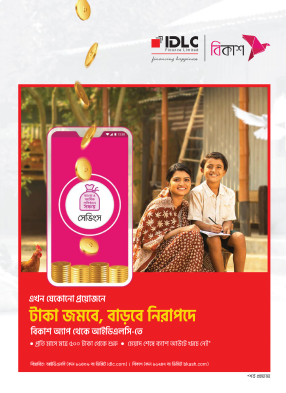- info@ficci.org.bd
- |
- +880248814801, +880248814802
- Contact Us
- |
- Become a Member
- |
- |
- |
- |
- |
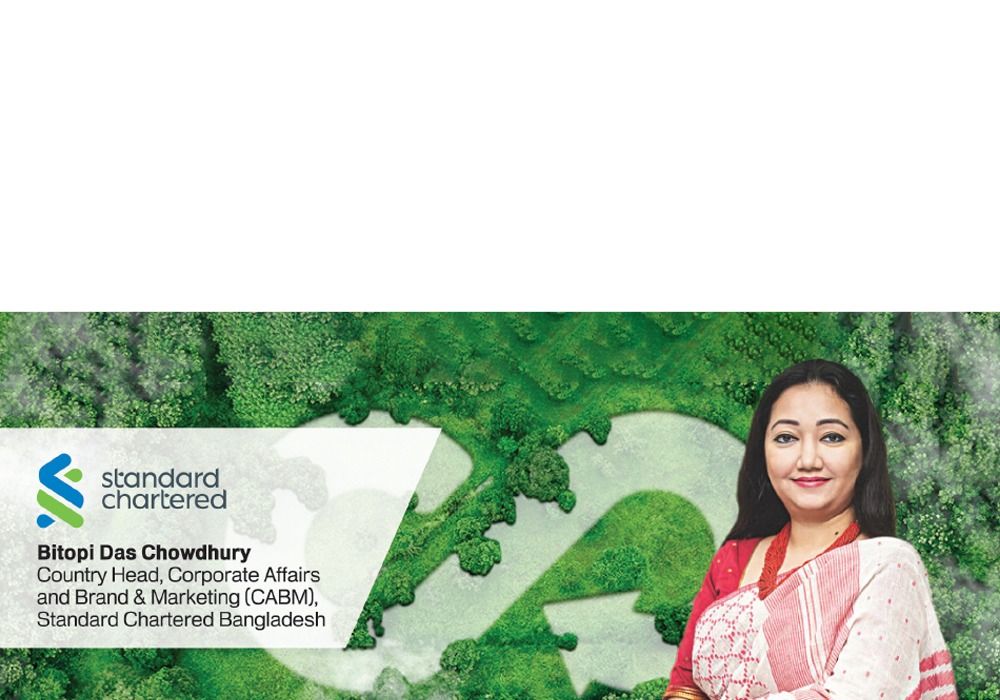
In Saint Martins Island, Amena lives with her three young children. Five years ago, she lost her husband, a fisherman, to the sea. To support her family, she works in a restaurant kitchen. During the off-season, life becomes even harder, and she sometimes relies on begging to provide food. When she learned about a plastic exchange programme, Amena began collecting plastic waste from the restaurant. In exchange for the plastic, she received daily essentials worth BDT 1,800. This practical solution now helps her support her children. Amena also encourages others in her community to participate, turning waste into valuable resources and a cleaner environment.
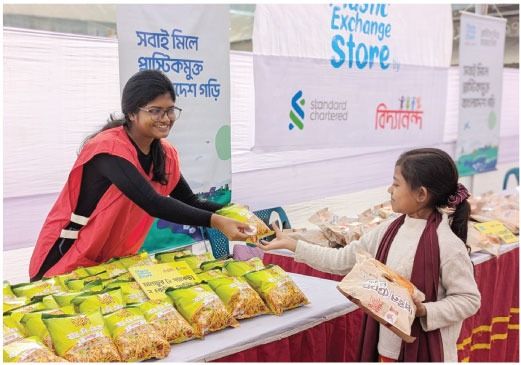
On June 27, 2024, Standard Chartered Bangladesh and the Bidyanondo Foundation launched a unique programme across Bangladesh. They established 74 plastic exchange camps nationwide, with more in the pipeline. Community members can bring plastic waste to these camps and receive essentials like rice, oil, and other daily necessities in return. The program supported around 82,000 people and have recycled approximately 227 tonnes of plastic till now. All collected plastic is repurposed into recycled PET bottles, contributing to a cleaner environment and a stronger circular economy.
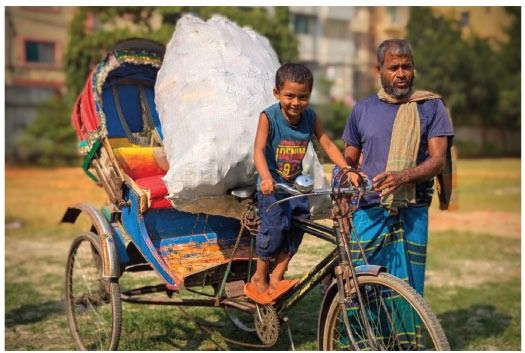
In Mirpur, Siraj pulls a rickshaw through busy city streets. He lost his family home in Rangpur to erosion from the Tista River. With a sick wife and two children to support, he used a microloan to buy a rickshaw. But daily costs remain challenging, particularly school expenses for his children. After learning about the recycling initiative, Siraj started collecting plastic in his neighbourhood. He even attached a red bin to his rickshaw, encouraging passengers to deposit plastic bottles instead of discarding them. He exchanges the collected plastic for essential goods and recently received school supplies for his children. The programme has not only helped ease his family's immediate burdens but also supports his children's education.
Bangladesh currently recycles about 30-37 percent of its plastic waste, with Dhaka alone recycling nearly 37.2 percent of the 646 tonnes collected daily. Globally, only about 9-9.5 percent of plastic produced in 2022 was made from recycled material, while approximately 40 percent still ends up in landfills and another 34 percent is incinerated. These figures highlight the critical importance of national efforts within the broader global challenge.
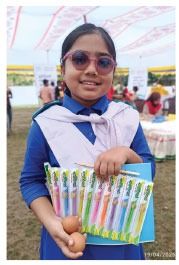 By offering practical household essentials for collecting plastic, the program creates direct value for participants. It distributes essential goods, improves waste management, and encourages community-wide engagement. Through small but meaningful actions, individuals like Amena and Siraj are building momentum, moving the nation toward its recycling goals and demonstrating what community-led initiatives can achieve.
By offering practical household essentials for collecting plastic, the program creates direct value for participants. It distributes essential goods, improves waste management, and encourages community-wide engagement. Through small but meaningful actions, individuals like Amena and Siraj are building momentum, moving the nation toward its recycling goals and demonstrating what community-led initiatives can achieve.
This model illustrates that connecting environmental objectives with everyday needs can deliver real-world impact. It serves as a reminder that initiatives rooted in local realities can drive measurable progress-toward cleaner cities, supported families, and a more sustainable future.
Standard Chartered is committed to the net zero journey, while promoting climate adaptation to help communities rise above climate adversities. As a part of this, we are working with our peer organisations to build strong partnerships that are strengthening the circular economy in Bangladesh. If you would like your organisation to be part of this, please write to me at: BitopiDas.Chowdhury@sc.com


